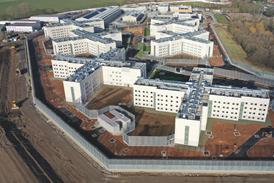Controversial £18bn nuclear plant approved - but with conditions
The government has given the go-ahead to the controversial £18bn Hinkley Point C nuclear plant, but with conditions.
One of the conditions extracted by Theresa May’s government is that the UK can block any attempted future sale of EDF’s controlling stake in the plant.
EDF committed to the project in July, only for Theresa May’s new government to launch a last gasp review into the project.
As a result of this review, the government has agreed a new deal with EDF that will allow it to block any attempted future sale, either during construction or after completion, without the prior notification and agreement of ministers.
There was no mention of Hinkley’s other investor in the government’s statement - China General Nuclear (CGN), which owns a one third stake. But CGN said it believed it would be able to proceed with involvement in further nuclear plants at Sizewell and Bradwell.
CGN said: “We are now able to move forward and deliver much-needed nuclear capacity at Hinkley Point, Sizewell and Bradwell with our strategic partners, EDF, and provide the UK with safe, reliable and sustainable low-carbon energy.”
Approval for Hinkley is a massive boost for UK construction, with billions of pounds worth of contracts up for grabs. Industry leaders have been expressing their delight at the news today.
Having thoroughly reviewed the proposal for Hinkley Point C, we will introduce a series of measures to enhance security
Greg Clark, business and energy secretary
Among the firms to immediately benefit are Laing O’Rourke and Bouygues TP, which bagged a £2bn deal for the main civil engineering works, while a Kier and Bam JV is already on site as part of a £203m enabling works deal.
Balfour Beatty and NG Bailey have a contract believed to be worth at least £500m to provide cabling and electrical works, with Costain currently on site doing investigative tunnelling as part of a marine works contract.
Mace and Gleeds are among a raft of firms with consultancy roles on the project.
The government has also announced it will impose a new legal framework on future foreign investment in Britain’s crtiical infrastructure, to include nuclear energy, that will apply after Hinkley.
After Hinkley, the government will take a “special” blocking stake in all future nuclear new build projects that will ensure “significant stakes” cannot be sold without the government’s approval.
The Office for Nuclear Regulation will also be given powers to review nuclear deals to ensure they protect national security.
Ministers will also reform the UK’s approach to all critical infrastructure, to ensure national security implications on major projects are reviewed.
Business and energy secretary Greg Clark said: “Having thoroughly reviewed the proposal for Hinkley Point C, we will introduce a series of measures to enhance security and will ensure Hinkley cannot change hands without the government’s agreement.
“Consequently, we have decided to proceed with the first new nuclear power station for a generation.
“Britain needs to upgrade its supplies of energy, and we have always been clear that nuclear is an important part of ensuring our future low-carbon energy security.”


























No comments yet